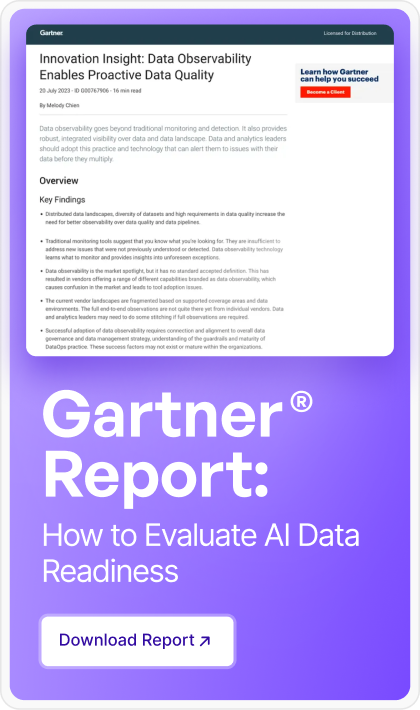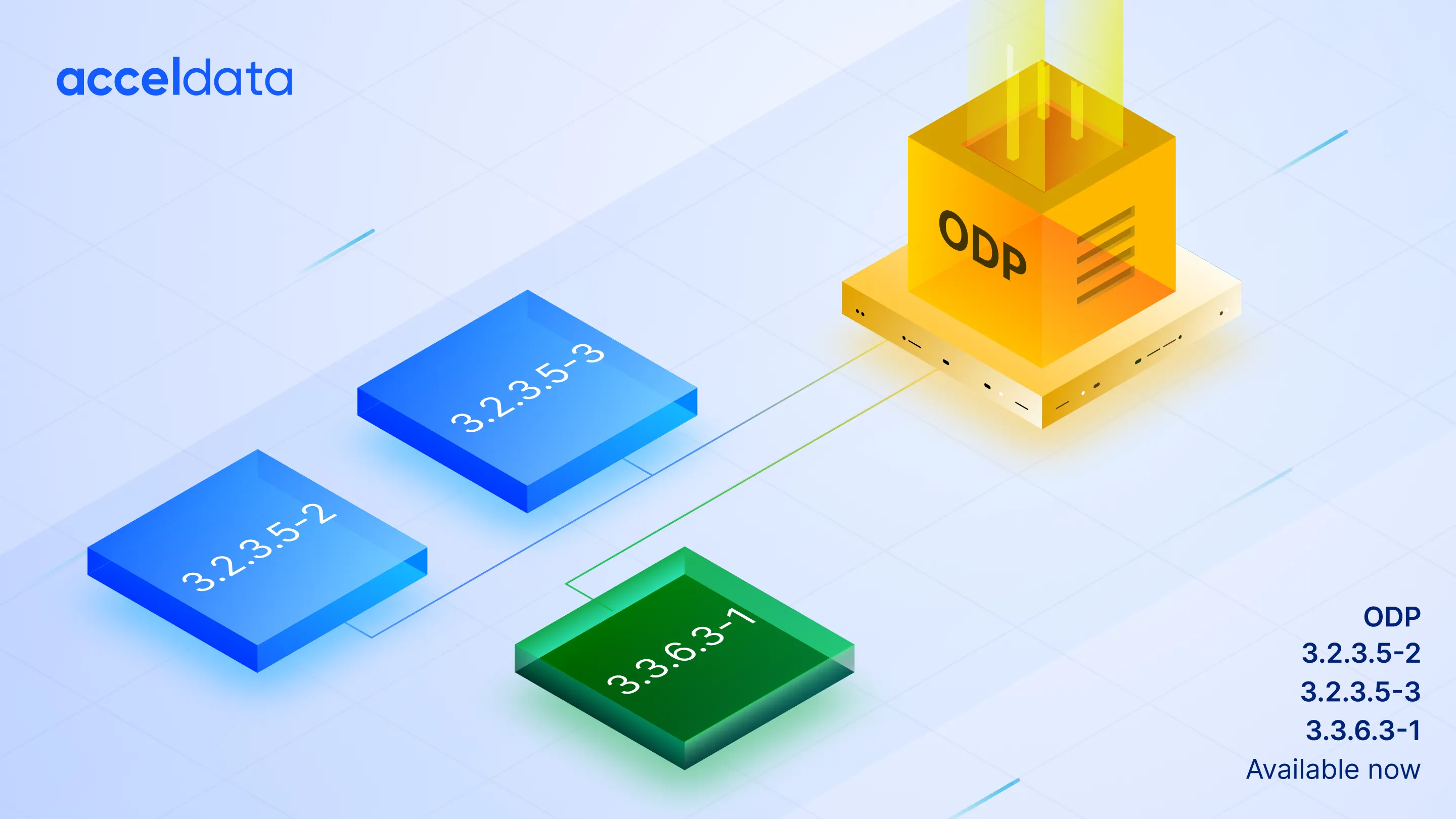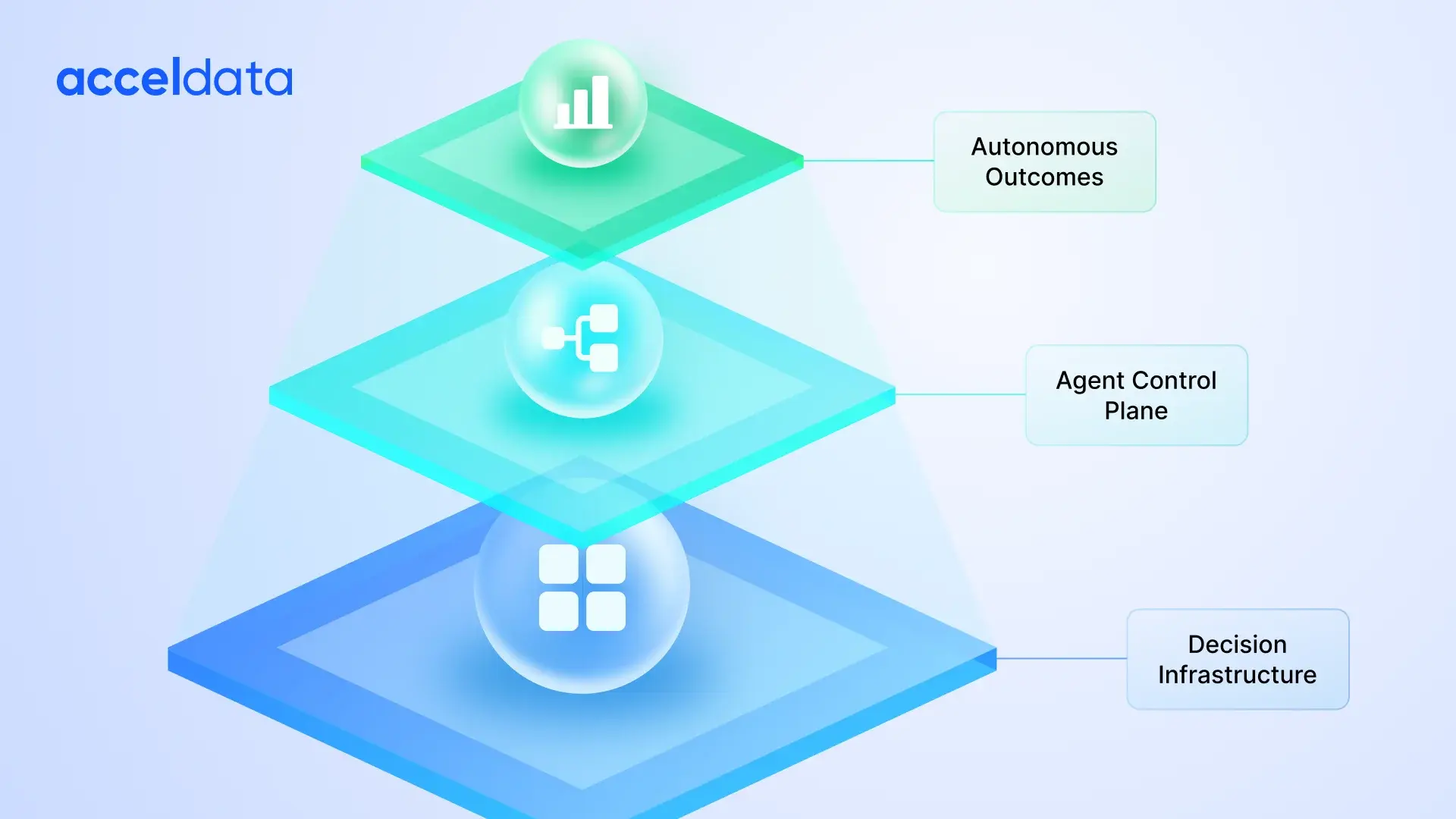Organizations find it challenging to manage vast and rapidly growing amounts of data. Picture a library where new books continuously emerge in various languages, formats, and genres—this reflects the complexity businesses face with data today.
Data management software, including enterprise data software, has become indispensable as it allows organizations to efficiently store, integrate, and govern their data.
The global enterprise data management market was valued at $99.40 billion in 2023 and is projected to reach $349.52 billion by 2034, expanding at a CAGR of 12.11%. This growth highlights the rapid shift toward advanced data solutions, transforming raw data into valuable strategic assets.
This article explores the features, types, and best practices of data management software to help businesses leverage data effectively.
What Is Data Management Software?
Data management software is a tool or set of tools that helps organizations handle all aspects of their data. This software makes it easier for businesses to collect, store, organize, and protect large amounts of information, ensuring it can be accessed and used efficiently.
Data management software enables better decision-making, supports regulatory compliance, and enhances productivity across the organization by ensuring that data is accurate, secure, and readily available.
Data management tools have become the backbone for any data-driven operation, ensuring that data is reliable and accessible for various business needs.
Features of Modern Data Management Software
Modern data management platforms are equipped with robust features to handle complex data environments efficiently using advanced data management strategies.
Some of the key features of modern data management software include:
- Data storage and organization
- Data management software provides scalable storage that accommodates both structured and unstructured data, with flexible deployment options across on-premise, cloud, and hybrid solutions.
- Data integration capabilities
- Data management software allows seamless integration from multiple data sources and supports real-time synchronization to create a unified view for accurate, up-to-date insights.
- Data quality management tools
- Data management software automates data validation, metadata management, and cleansing, ensuring data accuracy while offering real-time monitoring and audit trails for compliance.
- Data security measures
- Data management software includes encryption, role-based access control, and threat monitoring, enabling organizations to keep data safe and meet regulatory requirements.
- Reporting and analytics functionalities
- Data management software provides customizable reporting and data visualization to simplify complex data, while predictive analytics enables proactive, data-driven decisions.
Types of Data Management Software
The marketplace offers specialized tools that cater to different aspects of data management. The following solutions help businesses streamline processes, enhance data quality, and improve decision-making:
- Database Management Systems (DBMS): DBMS facilitates daily data transactions and storage operations, allowing businesses to manage, retrieve, and update data efficiently within structured environments.
- Data warehousing solutions: These solutions provide centralized storage designed for complex analytical processing, enabling businesses to generate comprehensive reports and insights from vast datasets.
- Master Data Management (MDM) systems: MDM systems ensure consistency and accuracy of key business data, harmonizing information across various systems and maintaining a "single source of truth" across the organization.
- Data integration platforms: These platforms help link and synchronize data from multiple sources, creating a unified data environment that supports seamless data flow and efficient cross-system operations.
- Data governance tools: These tools support compliance and enforce data quality standards, ensuring data is secure, accessible, and used according to regulatory and organizational policies.
Benefits of Using Data Management Software
Organizations implementing robust data management software experience numerous advantages.
Some of the key advantages are:
- Enhanced accessibility: Makes data readily accessible for authorized users.
- Improved collaboration: Facilitates data sharing across teams, enhancing teamwork.
- Operational efficiency: Reduces data redundancies and minimizes processing time.
- Better decision-making: Accurate data insights support sound business decisions.
- Regulatory compliance: Helps meet industry standards for data security and privacy.
The importance of adopting efficient data management software can be explained through the following example:
Starbucks effectively uses big data to enhance customer engagement and drive sales. With around 90 million transactions weekly across 25,000 locations, the company leverages big data through its loyalty program and mobile app to gather extensive insights into customer preferences and behaviors.
This data allows Starbucks to send personalized recommendations and offers, boosting store visits and increasing sales.
The intel that enables Starbucks to suggest new products also helps the company send personalized offers and discounts that go far beyond a special birthday discount. Additionally, a customized email goes out to any customer who hasn’t visited a Starbucks recently with enticing offers—built from that individual’s purchase history—to re-engage them.
How to Choose the Right Data Management Software
Selecting the appropriate data management software requires careful consideration of several factors. Some of the important factors are:
- Define business requirements: Identify your organization’s data needs and challenges.
- Evaluate features: Ensure the software meets your data storage, security, and analytics needs.
- Consider scalability: Select a software that can grow alongside your data requirements.
- Assess vendor support: Examine the vendor’s track record for customer support.
- Examine cost vs. value: Ensure the benefits of the software align with its cost.
Leading Data Management Software Providers
Understanding the leading data management software providers is key to selecting the right solution for your organization. The data management software market features a range of providers, each with unique strengths tailored to different organizational needs.
- Enterprise-grade solutions: IBM, Oracle, and Microsoft offer comprehensive platforms with robust features for large enterprises. These solutions provide end-to-end data management, from storage and security to analytics, helping organizations with complex data needs scale efficiently.
- Cloud-centric platforms: Snowflake and Amazon Redshift specialize in cloud-based data management. Their platforms enable flexible, scalable storage, and powerful data processing capabilities ideal for organizations seeking cloud-native environments.
- Data integration leaders: Informatica and Talend focus on seamless data integration across systems and sources. Their tools excel in enabling businesses to unify data from various applications and platforms, ensuring data consistency and accessibility.
- Innovative niche players: Smaller, specialized startups bring fresh innovations to data management. These providers often focus on niche needs, such as real-time analytics or AI-driven data quality, offering flexible, targeted solutions for specific use cases.
For a comprehensive solution that enhances data observability and quality, consider Acceldata, which provides advanced tools to ensure your data management needs are met effectively.
Role of Cloud in Data Management Software
The cloud-based data management services market is projected to expand from $40.2 billion in 2023 to $141.7 billion by 2028 at a CAGR of 28.7%. This growth is driven by the surge in the need for rapid deployment and cost optimization of cloud-based data management services.
Cloud-based data management solutions significantly enhance scalability, flexibility, and accessibility for organizations.
Businesses can quickly scale storage and processing resources to adapt to changing demands, eliminating the need for costly hardware investments. This flexibility allows teams to access data from anywhere, facilitating collaboration and improving productivity, especially for remote workers.
Cloud solutions also reduce infrastructure costs and maintenance overheads as providers manage updates and security. By leveraging cloud technology, organizations can focus on deriving insights from their data rather than worrying about operational complexities, ultimately driving efficiency and innovation.
Integration with Emerging Technologies
Modern data management software integrates with the following cutting-edge technologies to deliver enhanced capabilities:
AI and ML: By embedding AI and ML, data management software can classify and enrich data automatically, identify patterns, create data catalogs for organizing data, and offer predictive analytics. This makes it easier for companies to obtain insights from complex datasets.
Big data analytics: Modern data management tools incorporate big data analytics to process massive datasets, transforming raw data into actionable insights that help businesses make strategic decisions.
Real-time analytics: With real-time analytics, data management software enables instant data processing, which is crucial for fast-paced applications such as fraud detection and personalized customer interactions.
IoT integration: Data from IoT devices can flow into data management systems, helping organizations analyze device-generated data, improve operational efficiency, and support sectors such as manufacturing and healthcare.
Blockchain for security: Certain data management software leverage blockchain to strengthen data security and integrity, ensuring data is tamper-proof and verifiable, which is especially beneficial for compliance and governance.
Best Practices for Implementation of Data Management Software
Successful implementation of data management software requires careful planning and strategic execution.
Business should:
- Assess organizational needs: Identify your organization’s specific data needs and priorities. This step will guide you toward the right software solution.
- Select the right software: Choose a solution that aligns with your data volume, use cases, and scalability needs, ensuring that it can adapt as your organization grows.
- Ensure proper data governance: Establish robust data governance tools and policies for data quality, privacy, and compliance to protect and manage your data responsibly.
- Provide user training: Equip users with training on software features and best practices, enabling them to use the tool effectively and efficiently.
- Establish ongoing support: Set up a support system for continuous updates, troubleshooting, and maintenance to keep the software running smoothly and up-to-date.
Use Cases of Data Management Software in Various Industries
Data management software plays a vital role in various industries by streamlining processes and enhancing decision-making.
From healthcare to finance, database management tools help organizations manage their data effectively to improve operational efficiency and drive growth.
- Healthcare: Data management software enables hospitals and clinics to store, organize, and analyze patient records securely. This improves treatment accuracy by facilitating quick access to patient history, medication, and test results while also supporting regulatory compliance in patient data privacy.
- Finance: Financial institutions use data management tools for secure transaction processing, fraud detection, and risk analysis. By integrating and managing real-time transaction data, they can detect anomalies more effectively and enhance data security measures, which are critical for customer trust and regulatory adherence.
- Retail: Data management software optimizes inventory control and customer relationship management. It helps track inventory levels in real time, forecast demand, and analyze customer behavior to deliver personalized marketing and streamline operations.
- Manufacturing: Manufacturers use data management solutions to improve supply chain efficiency, tracking everything from raw materials to finished products. This software facilitates production planning, inventory management, and supplier coordination, reducing waste and improving overall productivity.
- Education: Schools and universities leverage data management software to streamline student records, attendance, and academic performance data. This helps automate administrative processes, support personalized learning paths, and maintain secure data environments in compliance with educational data standards.
Future Trends in Data Management Software
The future of data management software is driven by emerging trends, with automation leading the way. By streamlining workflows and reducing manual tasks, automation enables organizations to focus on strategic objectives.
The integration of artificial intelligence is enhancing data analysis, providing predictive insights that help businesses optimize their data usage. Advancements in data privacy technologies, such as encryption, are crucial for ensuring data compliance and protecting user data.
Finally, growth in emphasis on user-friendly interfaces is making it easier for individuals of all skill levels to navigate complex systems. Together, these trends promise a more efficient and secure approach to data management.
Maximize Your Data Management Efficiency with Acceldata
Data management software is essential for today’s data-driven organizations, enabling them to efficiently handle, secure, and leverage data for informed decision-making and operational success.
By implementing the right tools and best practices, businesses can transform their data into valuable assets, driving growth, innovation, and a competitive edge.
Acceldata transforms data management by providing comprehensive observability through real-time monitoring across all data environments. Its platform offers automated quality control that ensures continuous assessment and improvement of data quality.
The platform also focuses on proactive issue resolution, allowing for early detection and resolution of potential problems. With performance optimization capabilities, Acceldata intelligently allocates resources to enhance efficiency. Finally, its scalable architecture supports the growing data needs of organizations..
Schedule a demo of Acceldata's solutions today to discover how they can enhance your data management capabilities.








.png)








.webp)
.webp)


